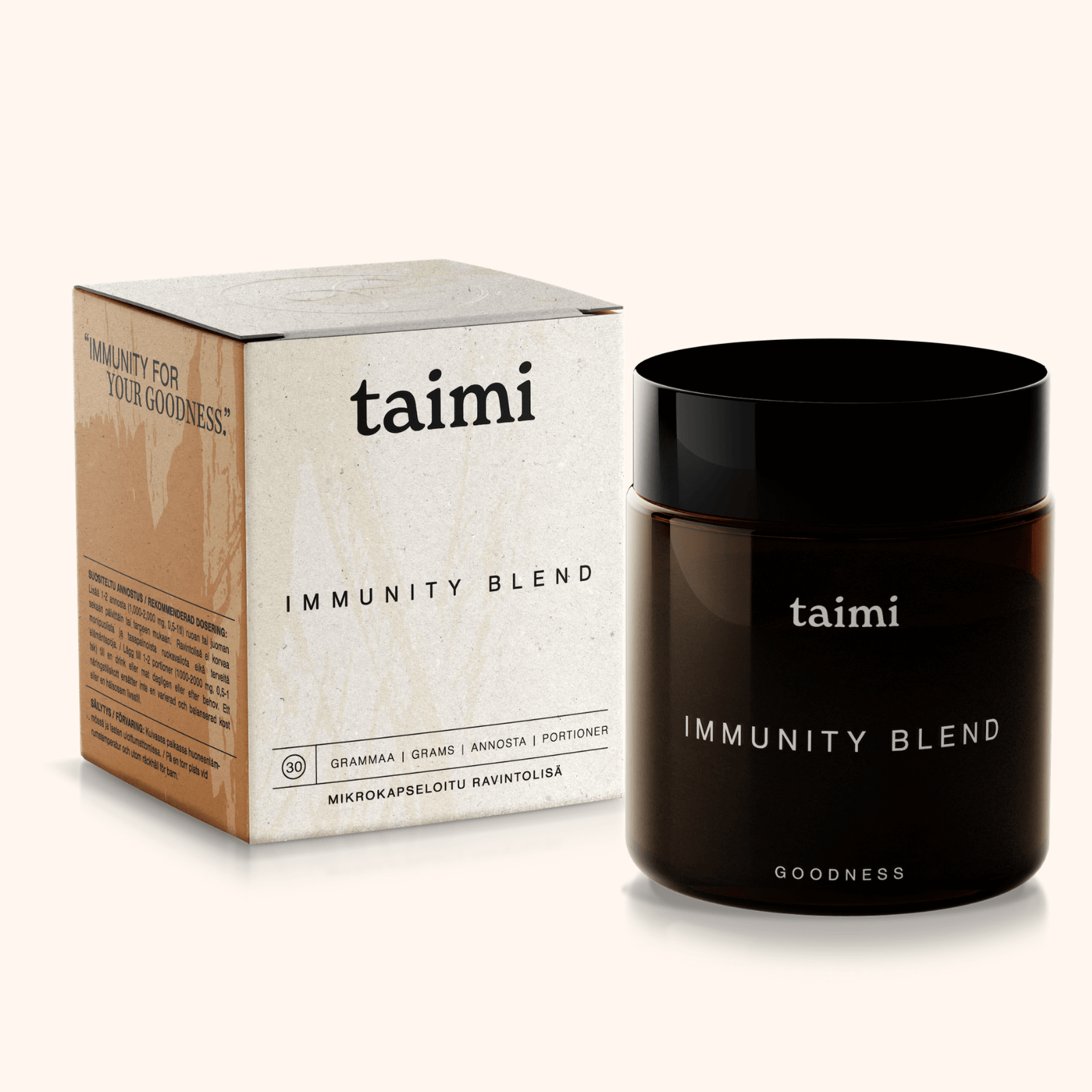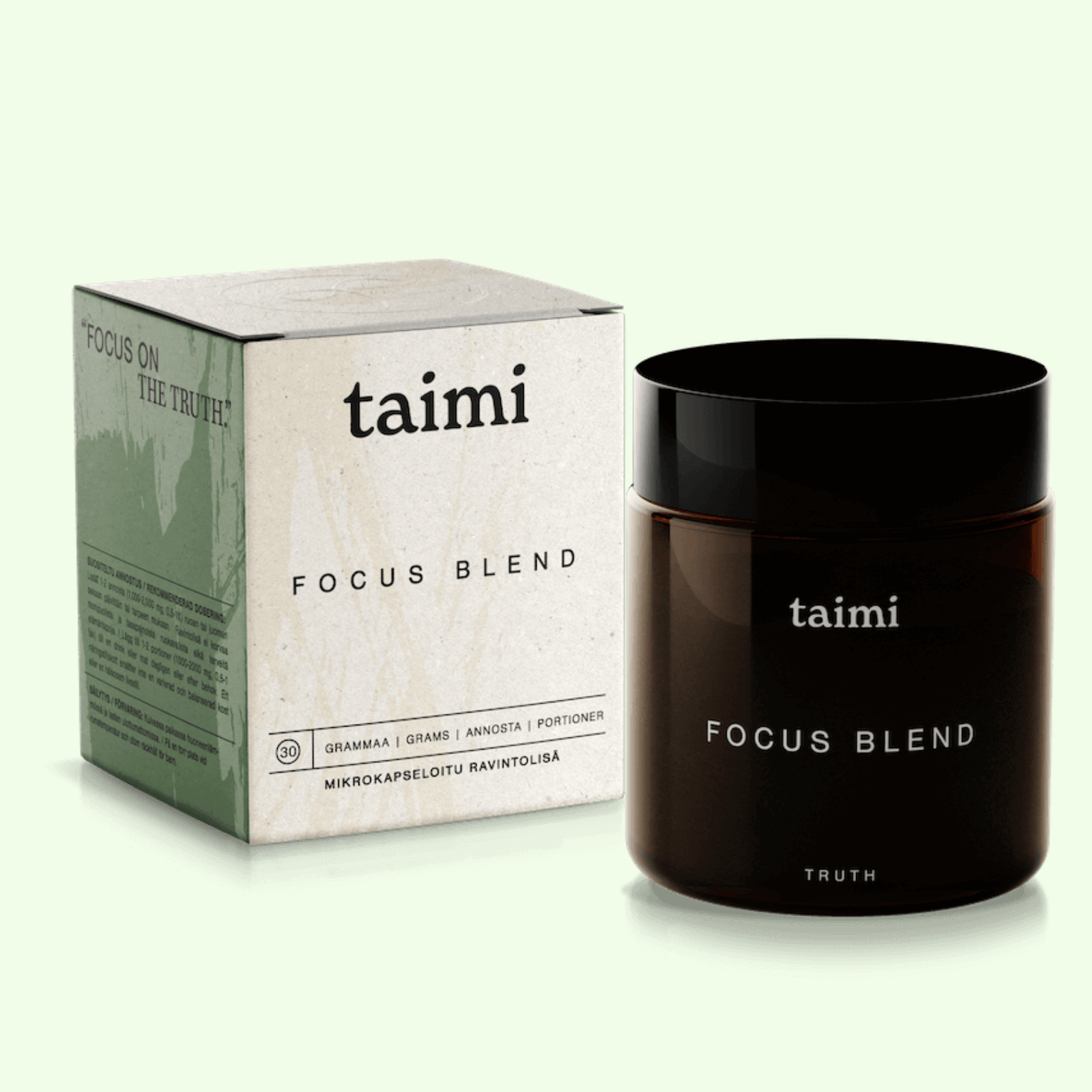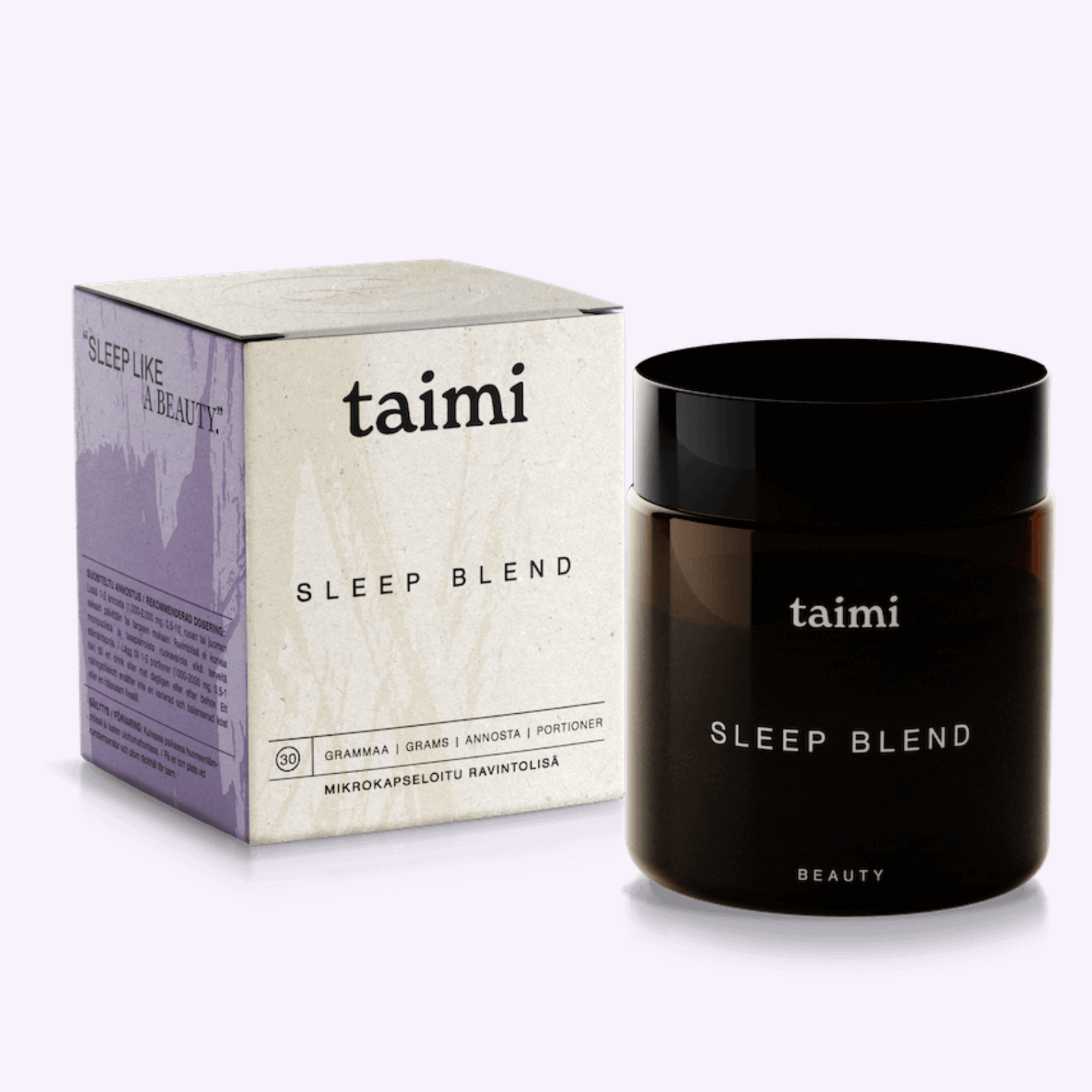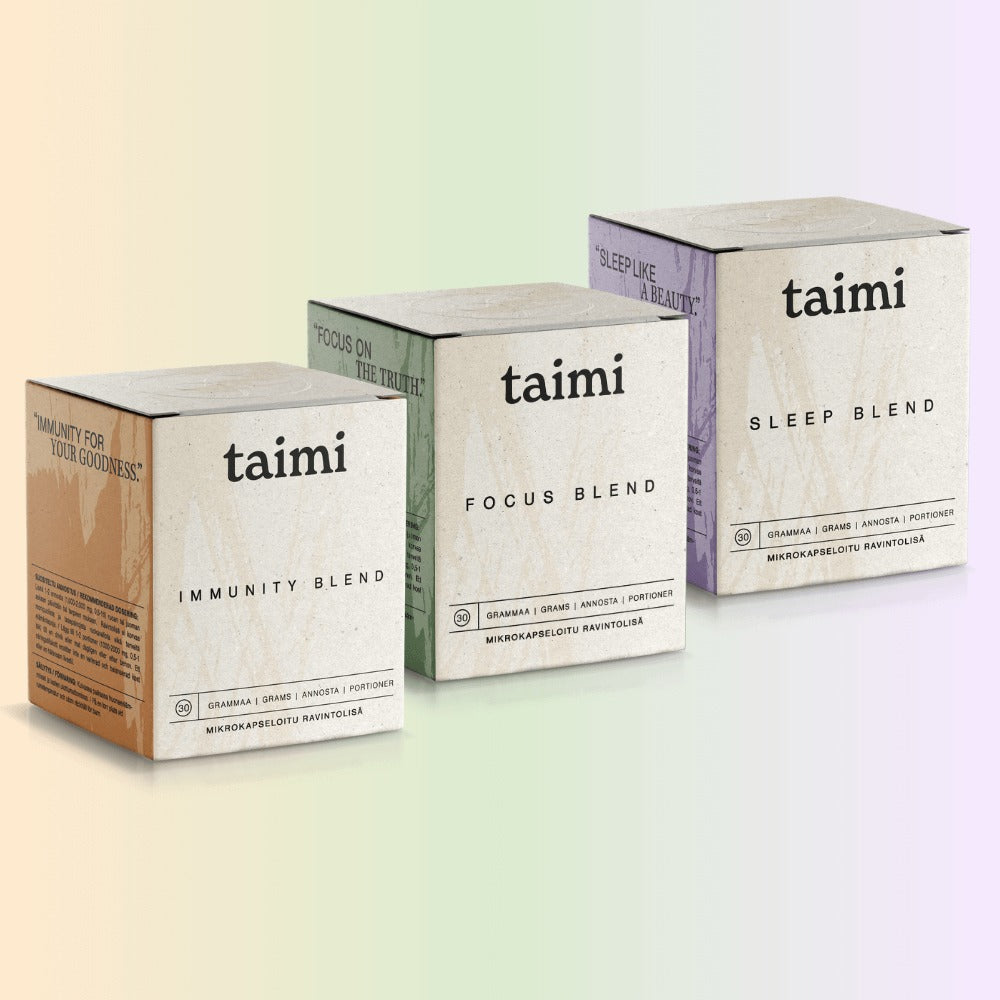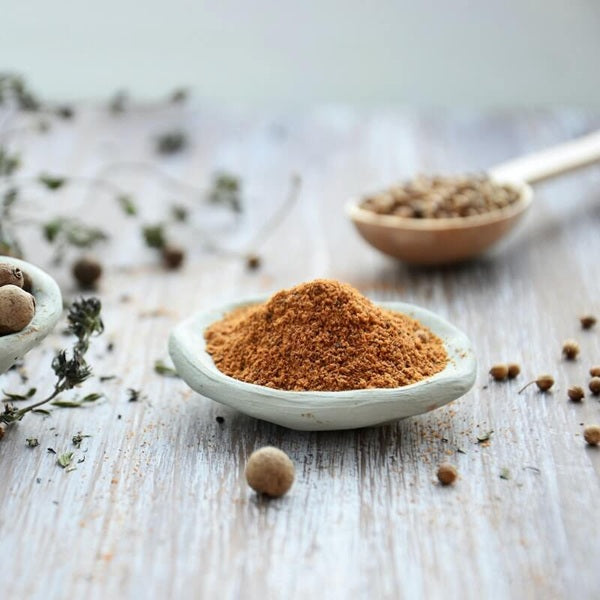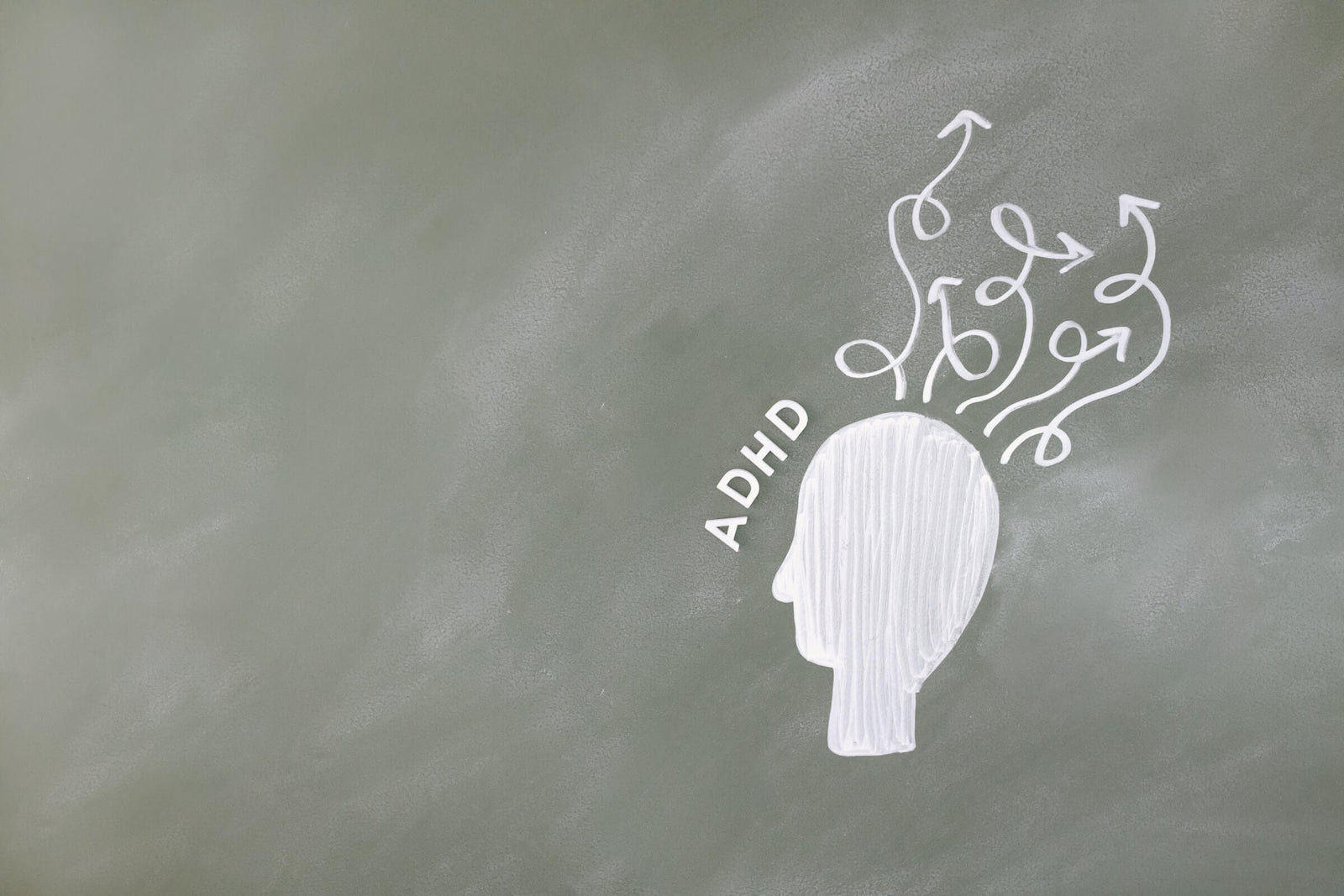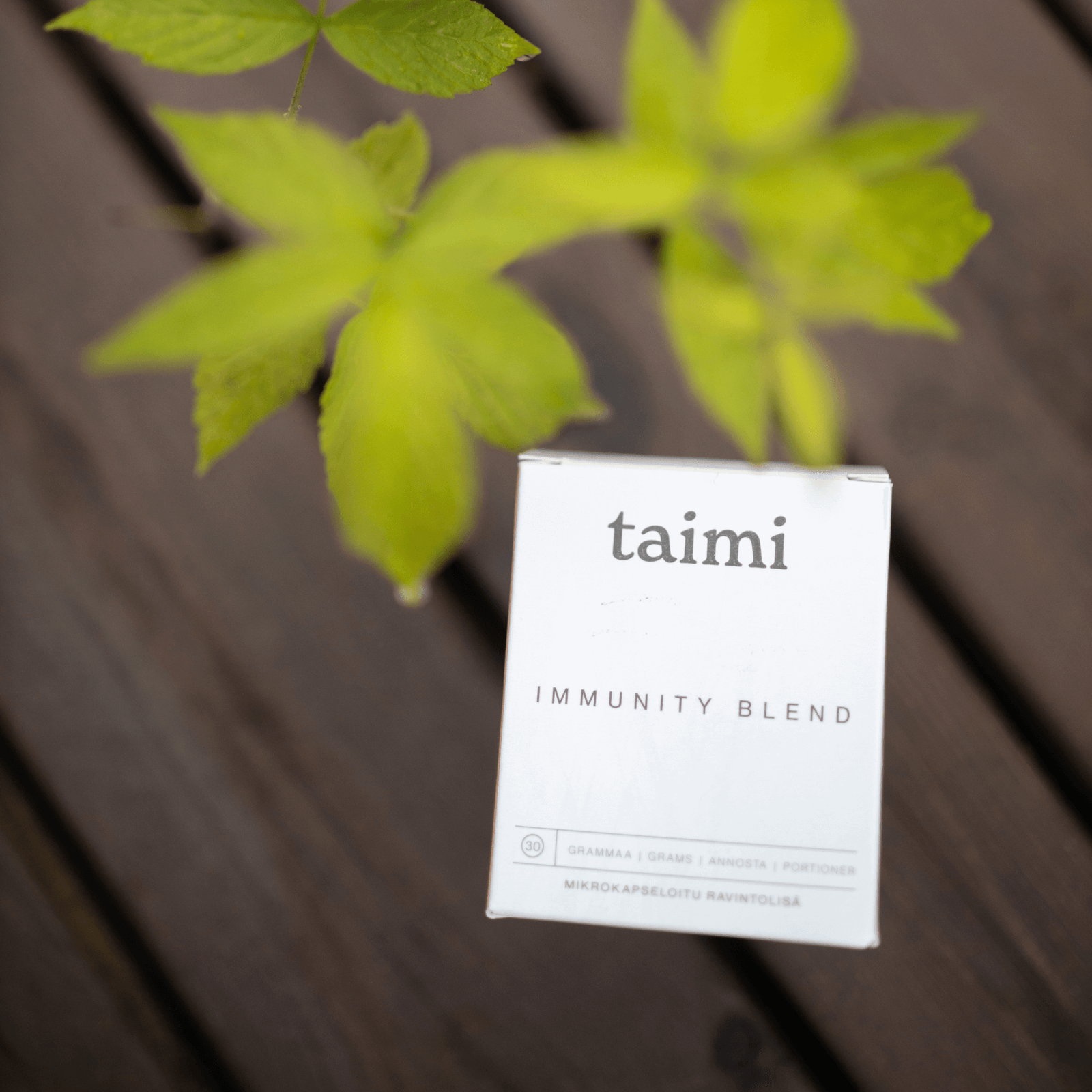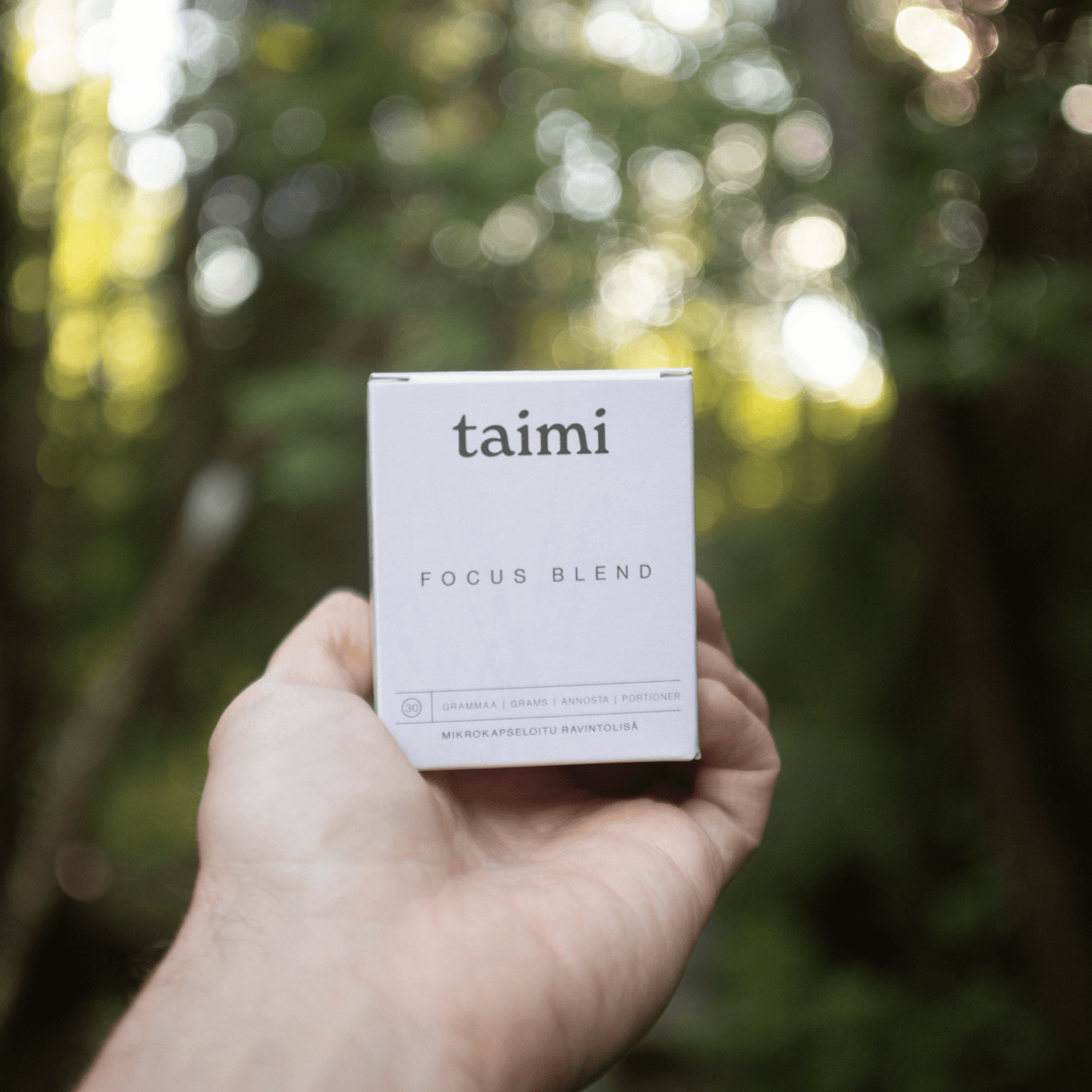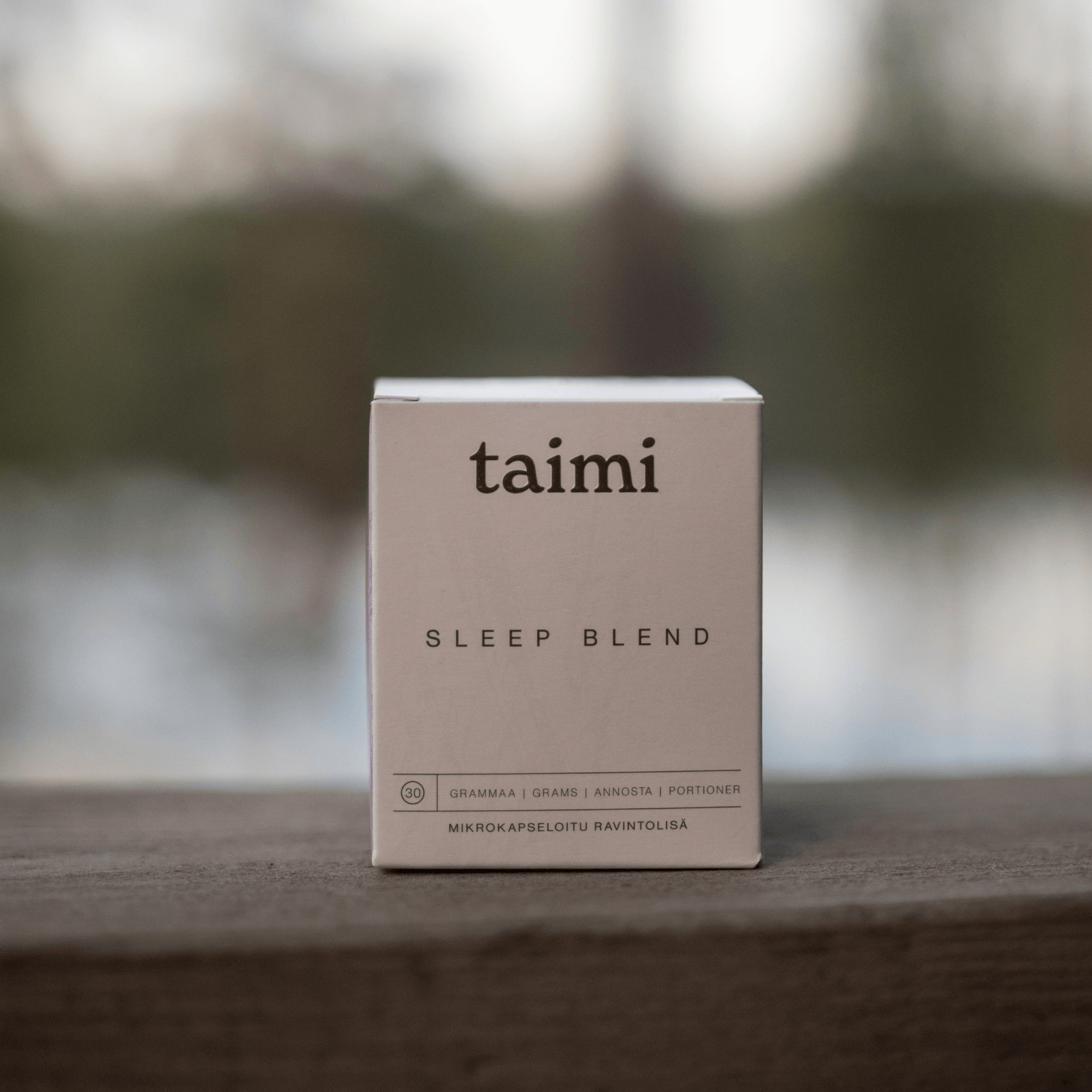Table of contents
Niacin is an important water-soluble vitamin in many areas of health, from brain function to heart health. Niacin is also one of the few nutrients that doctors prescribe to treat health problems such as high cholesterol, skin conditions and schizophrenia - both as supplements and through foods containing niacin.
So what are the health effects of niacin and how can it promote your well-being?
What is Niacin?
What does niacin do? Vitamin B3, or niacin, is an important fat-regulating, water-soluble vitamin. It is found in many common foods such as meats and offal, tuna, seeds and mushrooms.
Niacin is part of the B vitamins together with vitamin B1 (thiamine) , vitamin B2 (riboflavin) , vitamin B5 (pantothenic acid) , vitamin B6 (pyridoxine) , vitamin B9 (folate ) and vitamin B12 (cobalamin) . It is found in three forms: nicotinic acid, niacinamide, and inositol hexanicinate. Niacin has been extensively researched and shown to help treat a wide range of common health problems.
How does niacin affect your body and how is it used? Niacin is an important vitamin for maintaining a healthy heart and metabolism, as well as balancing blood cholesterol levels. In addition to this, it supports brain function, skin health and possibly helps in the prevention and treatment of diabetes.
However, niacin has several side effects that have been studied. They can occur when medicines or supplements containing niacin are taken in high doses. The most common side effects of niacin are headache, dizziness and low blood pressure. This article provides a comprehensive list of niacin uses, possible side effects, benefits, sources, and signs of deficiency.
Niacin Benefits
Although excessive amounts are harmful, eating foods containing niacin and using supplements in the right amount have many benefits. Below is a list of niacin benefits and health effects.
1. Improves cholesterol levels
Niacin is considered an important treatment option for lowering cholesterol levels. It has been shown to reduce the risk of heart disease in patients with mixed dyslipidemia, that is, elevated plasma cholesterol, triglycerides, or both.
Research shows that niacin supplementation is beneficial for those at increased risk of heart attack or stroke due to high levels of "bad" LDL cholesterol, low levels of "good" HDL cholesterol, or elevated triglyceride levels.
Several studies have shown that, given in large doses, niacin can raise "good" HDL cholesterol levels and lower triglycerides as effectively as prescription drugs. In addition, niacin also helps lower "bad" LDL cholesterol. It can be prescribed together with statins to control cholesterol.
2. May reduce the risk of heart disease
In addition to helping balance cholesterol and triglycerides, niacin has other benefits for heart health. Niacin helps reduce atherosclerosis, the dangerous hardening of the arteries that can lead to heart attack, stroke or coronary artery disease.
In people who have had a heart attack or have had heart disease, niacin can help reduce the risk of recurrence by lowering the amount of LDL lipoprotein in the blood, one of the main risk factors for heart disease. In one 24-week study in men with high lipoprotein levels, lipoprotein(a) levels decreased when they were treated with a high dose of long-acting niacin.

Niacin has been found to support brain function and mood.
3. Regulates blood sugar
One of the biggest benefits of niacin is its ability to balance blood sugar and help manage the symptoms of diabetes. Niacin, in the form of niacinamide, is believed to be beneficial in the treatment of diabetes by improving the function of the beta cells responsible for insulin production.
It is good to know that according to some studies , niacin may also contribute to complications when blood sugar rises. If you have a condition related to high blood sugar, talk to your doctor before taking niacin to avoid its side effects.
4. Improves skin health
Niacin or niacinamide is also used for skin care . Vitamin B3 in the form of niacinamide is used as a natural skin care product to remove acne. It can be used locally on the skin and internally in the form of a niacin supplement to reduce symptoms.
Because niacin is able to reduce skin inflammation, breakouts, irritation, redness and other symptoms, it has also been used to treat skin diseases such as bullous and granuloma annulare.
5. Supports brain function
Research shows that vitamin B3 improves brain health and may help protect against Alzheimer's disease and other brain diseases associated with age and cognitive decline. Niacin is also used to treat and prevent schizophrenia and hallucinations. In addition, studies and case reports have found therapeutic effects of niacin on depression, bipolar disorder and other psychiatric disorders.
6. Promotes joint health
According to some studies, vitamin B3 in the form of niacinamide can effectively increase joint mobility. Some studies have found that increased niacin intake may be associated with reduced joint pain and inflammation associated with diseases such as osteoarthritis.
Niacinamide has been found to improve joint mobility and reduce swelling, potentially reducing the use of conventional pain relievers or arthritis medications.
For the treatment of osteoarthritis or bone and joint pain, niacin is usually prescribed in large doses due to its anti-inflammatory effects. Lowered levels of inflammation help reduce symptoms of arthritis and rebuild joint cartilage, which is crucial for mobility and strength.
7. Treats Pellagra
Niacin deficiency causes pellagra, which occurs most often in people with eating disorders or alcoholism. Symptoms of pellagra can include weak muscles, digestive problems, inflammation and skin problems.
People with pellagra have too low niacin levels. Most often, this is due to either insufficient dietary niacin intake or digestive problems, such as problems with protein metabolism or amino acid absorption. If niacin levels are not corrected, a person with pellagra can die within a few years as a result of the deficiency.
A typical treatment for pellagra includes large amounts of vitamin B3 in the form of nicotinamide. Nicotinamide has the same function as niacin, but works slightly differently in terms of absorption and side effects.
8. Helps prevent erectile dysfunction
Impotence is a man's inability to maintain an erection. Erectile dysfunction affects male self-esteem in particular. It can be partly due to poor blood circulation and other factors such as stress, fatigue or illness. Niacin prevents erectile dysfunction, as it dilates blood vessels and helps improve blood circulation throughout the body. 1,500 milligrams of niacin per day for 12 weeks has been shown to help men with erectile dysfunction.
9. Protects against congenital diseases
Niacin has been shown to increase the amount of nicotinamide adenine dinucleotide (NAD+) inside the cell. NAD molecules are important for energy storage and DNA synthesis in cells. Increasing niacin concentrations in pregnant women can potentially reduce birth defects.
According to an article published in 2017, disturbances in the production of the NAD molecule can cause deformities in both humans and mice. A niacin supplement during pregnancy may help prevent these malformations.
Despite these findings, more studies in humans are needed. In particular, further research is needed on the effect of pregnancy on NAD levels and to define healthy niacin levels for pregnancy.

An overdose of niacin may cause temporary stomach symptoms.
The use of vitamin B3 in traditional medicine
Foods rich in niacin usually also contain many other important nutrients, which is why they have been used in various forms of traditional medicine.
Beef, poultry, and fish are commonly used ingredients in traditional Chinese medicine that are believed to strengthen Qi. Qi is the life force necessary for maintaining life and maintaining mental and physical health. Fish is also believed to reduce exhaustion, beef is used to strengthen the spleen and chicken is believed to keep the kidneys in good condition.
An Ayurvedic diet uses plenty of plant-based foods rich in niacin. For example, sweet potatoes are filling, easy to digest, and excellent for liver health, while asparagus is believed to reduce inflammation, help alkalize the body, and nourish the blood.
Adverse effects and interactions
Niacin's efficacy, safety, side effects and pharmacological properties have been investigated in several studies. Although more studies are needed to draw definitive conclusions, preliminary studies indicate that niacin may be difficult to tolerate for some people and lead to several unwanted niacin side effects.
When weighing the benefits of niacin against the potential harms, researchers have found that vitamin B3, alone or combined with other drugs or supplements, has beneficial effects, especially in terms of heart health. To prevent possible side effects of niacin, doctors recommend that people suffering from diseases should only take supplements as directed and preferably under the supervision of a doctor.
Even if you eat foods rich in niacin, the chance of side effects is very small. Taking large doses of supplements, on the other hand, can cause a wide range of possible symptoms, such as:
- Nausea and vomiting
- Skin problems
- Headache
- Dizziness
- Allergic reactions: Niacin preparations can cause allergies, as some of them contain histamines
- Heart problems
- Elevated blood sugar
- Impairment of gallbladder function
- Gout
- Low blood pressure
- Ulcer
- Intestinal problems
Niacin deficiency symptoms and causes
Niacin deficiency is rare in Finland, where malnutrition is rare. The most common causes of deficiency are alcoholism, malnutrition, digestive disorders and long-term use of drugs that interfere with absorption.
The clinical symptoms of vitamin B3 deficiency are usually classified as the "4 D's":
- dermatitis (Dermatitis)
- diarrhea
- dementia (Dementia)
- death (Death).
The most common symptoms of niacin deficiency:
- Pellagra - Characterized by skin problems, hallucinations, indigestion. Usually occurs due to malnutrition or alcoholism, and may also be accompanied by diarrhea and mental health problems.
- Swelling of the mucous membranes - Symptoms affecting the mouth, vagina and urethra, the tongue may swell and become sore, salivation increases, ulcers form.
- Digestive disorders - Symptoms include burning in the pharynx and esophagus, stomach upset, constipation, nausea, vomiting and diarrhea.
- Brain dysfunction and psychosis - Studies have found a link between niacin deficiency and depression, disturbances in consciousness, impaired cognitive function, confusion, mania or paranoia.
Sources of Niacin: Top 15 Foods
Daily intake recommendation for niacin in Finland
- Children , 6-11 months: 5 mg
- Children , 12-23 months: 7 mg
- Children , 2-5 years: 9 mg
- Children , 6-9 years: 12 mg
- Women , 10-13 years: 14 mg
- Women , 14-74 years: 13-16 mg
- Women , +75 years: 13 mg
- Men , 10-13 years: 16 mg
- Men , 14-74 years: 16-19 mg
- Men , +75 years: 15 mg
Sources of niacin
There are plenty of foods rich in niacin, so it is easy to meet the daily requirement by following a healthy diet. When you get most of your niacin from a healthy diet instead of supplements, you also get plenty of other important nutrients your body needs.
Here are the 15 foods with the most niacin:
100g of food, the amount of vitamin B3 in milligrams (% of the recommended daily intake, for women, 15mg):
- Wheat bran: 23 mg (153%)
- Reindeer liver: 18.6 mg (124%)
- Tuna: 15.2 mg (101%)
- Pig liver: 14.2 mg (95%)
- Peanut: 13.8 mg (92%)
- Broiler liver: 12 mg (80%)
- Beef liver: 11.2 mg (75%)
- Hemp seed: 9.2 mg (61%)
- Chian seed: 8.8 mg (58%)
- Salmon: 8.4 mg (56%)
- Kidney: 8.1 mg (54%)
- Broiler: 7.8 mg (52%)
- Turkey: 7.5 mg (50%)
- Beef heart: 7.5 mg (50%)
- Spelled flour, whole grain: 6.8 mg (45%)

Chia seeds are an excellent source of niacin and other vitamins.
Supplements and dosage
The ideal dose of niacin depends on your intended use, age, weight, gender, and any other special needs you may have. For example, when niacin is prescribed to control cholesterol, large doses of at least two or three grams are used. For those optimizing their health and, for example, increasing energy levels or improving exhaustion, a significantly smaller amount is sufficient.
When using a niacin supplement, it is recommended that you take it with a meal, so that food slows down its absorption and prevents side effects of niacin, such as stomach upset.
Remember that niacin is a water-soluble vitamin, i.e. excess amounts are excreted from the body through urine. Because of this, water-soluble vitamins, such as niacin and other B vitamins, should be obtained daily primarily through food. If you don't get enough niacin and other B vitamins with food, you can supplement your diet with the help of supplements .
How to use B vitamins
Most Finns get enough vitamin B3 from a healthy diet to meet their daily needs. However, if you are considering taking supplements, be sure to choose a quality product over a cheap one.
In certain cases, taking a vitamin B supplement may be necessary to ensure an adequate intake of B vitamins. B vitamins work better together than separately, because they interact with each other and help optimize each other's absorption and function.
Taimin's Focus Blend contains all the necessary B vitamins in a high-quality and well-absorbed form. Microencapsulation improves absorption even more and guarantees ease of use. In addition to B vitamins, Focus Blend contains choline, adaptogenic herbs, medicinal mushrooms and a total of 17 ingredients. It is the only comprehensive functional food supplement on the market. In addition to the intake of B vitamins, Focus Blend supports brain health, memory, learning and nervous system regeneration, so it is actually a more comprehensive product than "normal" multivitamin preparations.
>> Check out Focus Blend here <<
B vitamins can be useful in supporting metabolism and promoting the health of the heart, brain, muscles and joints. However, remember that it is better to eat enough foods that naturally contain vitamins and minerals. Eat quality meats such as free-range poultry and grass-fed beef, wild-caught fish, beans, nuts and seeds to ensure your daily intake of B vitamins. Unlike a niacin supplement, eating foods rich in niacin should not lead to levels high enough to cause niacin side effects.
Certain medications, such as lovastatin and simvastatin, can be used with prescription niacin to lower cholesterol levels and promote heart health. If you are taking these prescription medications, it is important to talk to your doctor so that together you can determine the right dosage for you to minimize side effects and maximize results.
Niacin, Niacinamide, Nicotinic acid
Niacin exists in three different molecular forms:
- Nicotinic acid
- nicotinamide/niacinamide
- Inositol Hexanicinate
Nicotinamide, or niacinamide, is one of the most common forms of vitamin B3, found in both foods and supplements. Nicotinamide is often preferred over other supplemental forms of niacin because it is less likely to cause flushing (niacin flush) and can be used for a variety of purposes, including treating pellagra, acne, and arthritis. Unlike niacin, nicotinamide is less effective at lowering cholesterol levels and promoting heart health.
The history of niacin
Austrian chemist Hugo Weidel was the first to discover niacin in 1873. Biochemist Casamir Funk, who is credited with inventing the concept of vitamin based on the amine group he observed in niacin's chemical structure, was the first to extract niacin.
In 1937, Conrad Elvehjem found that niacin could cure pellagra. Niacin was soon used to supplement food to prevent its deficiency and pellagra at the population level. Niacin was originally known as "nicotinic acid," but was later renamed to distinguish it from nicotine, one of the chemicals found in tobacco.
By 1955, researchers began to recognize the link between niacin and cholesterol, securing its place as one of the oldest lipid-lowering drugs in existence. Today it is widely used as a natural remedy for many different health problems such as high cholesterol levels, schizophrenia and arthritis.
A word of caution
As with other water-soluble vitamins, excess amounts of niacin are usually excreted through the urine, which helps prevent niacin overdose. For this reason, eating foods rich in vitamin B3 is unlikely to cause harmful side effects.
However, taking large doses of niacin as a dietary supplement can cause various symptoms. "Niacin flush" is one of the most common side effects, characterized by redness, burning and itching of the skin. Other possible side effects of niacin include stomach pain, nausea, high blood sugar, liver damage, and gout.
That's why it's important to use niacin as directed and consult with your doctor before starting a niacin supplement if you have a health problem or are taking other medications. If you experience negative symptoms of niacin, consider reducing the dose or stopping use and talk to a wellness professional to determine the best course of action for you.
Summary
- What is niacin? Niacin, i.e. vitamin B3, is a comprehensively researched water-soluble vitamin that affects cholesterol levels, maintains metabolism, promotes skin health, supports nervous system function and enhances brain function.
- What are the best sources of niacin? Niacin is found in many different foods and supplements. Good alternatives include beef, poultry, offal such as liver, and some seeds.
- What are the health effects of niacin? Niacin promotes heart health, prevents and treats erectile dysfunction, relieves joint pain, supports skin condition, regulates blood sugar levels, promotes cognitive functions, treats pellagra and prevents congenital diseases.
- Is niacin dangerous? Niacin is not directly dangerous, but niacin overdose is associated with adverse effects. The most common side effects of niacin include niacin flush, which is characterized by reddening of the skin, upset stomach, elevated blood sugar and skin problems.
- How to use niacin? When you follow a well-rounded, healthy diet, you are more likely to get enough niacin to cover your daily needs. Niacin supplementation can be used to optimize health and for certain individual functions, such as enhancing cognitive functions and lowering cholesterol levels. If you are taking medication, talk to your doctor beforehand about using a niacin supplement.

